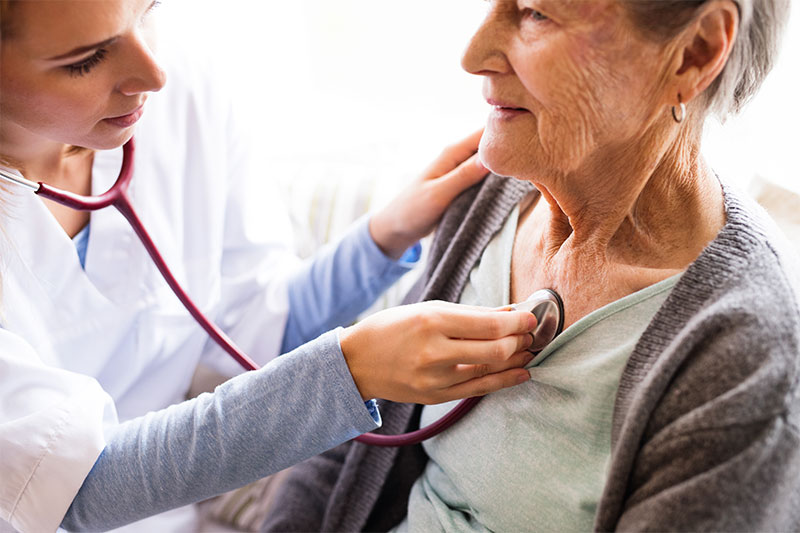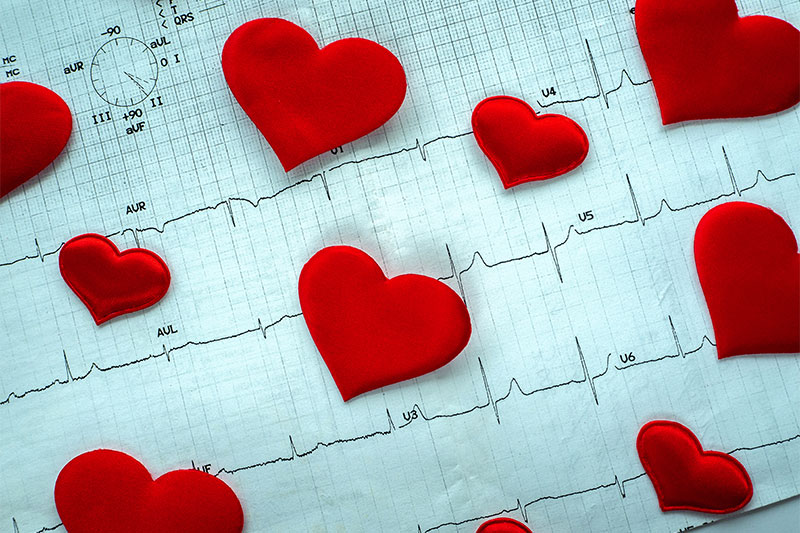As you age, your body goes through many changes and there is nothing you can do about it. You can’t stop time and that means you cannot stop aging. And the unfortunate thing is that as your body goes through those changes, they are harmful to your heart.

What are the age-related changes that your body goes through that hurts your heart? There are 10 of these changes and let’s talk about those now.
The Heart Increases In Size
Your heart begins to increase in size, especially at the left ventricle as you age. As a result, the heart wall becomes thicker and the chamber becomes smaller and ends up holding in less blood. This means the heart fills more slowly which also stresses the heart.
Heart Pathways Develop Fat Deposits And Fibrous Tissue

As you age, some pathways of your cardiovascular system end up with fibrous tissue and fat deposits. Therefore, what happens is that the natural pacemaker in your heart that controls the heartbeat loses cells this way. This can cause the heartbeat to slow and that puts stress on the heart.
Heart Ends Up With Deposits Of Lipofuscin
The heart ends up with deposits of lipofuscin which is also known as ‘aging pigment’. This causes the valves in the heart which are responsible for the flow of the blood to become thick and they stiffen up. This often results in a heart murmur.
Capillary Walls Thicken
The walls in your capillaries end up thickening slightly over time. This causes the exchange of wastes and nutrients to happen more slowly and that does put more stress on the heart. This is something that cannot be avoided as it is to be expected.
The Aorta Stiffens
The main artery in the heart is known as the aorta stiffens over time. It also thickens and loses its flexibility, and this is likely due to the changes that happen inside of the connective tissues in the walls of the blood vessels. This is the common cause of hypertension and this can also cause the heart muscle to thicken which is known as hypertrophy. It is also common for this to happen to other arteries which causes some increase to the blood pressure.
Other Illnesses That Often Result With Age Can Have A Negative Effect On The Heart
If you develop a condition that affects your thyroid, for instance, that puts a strain on your heart as well. Your body operates in a system and if other age-related disorders occur, then it will stress your heart out. It has an effect on the blood flow as well as blood pressure, which has an effect on the heart.
Accumulative Effect Of Medications
This point may not necessarily be age-related, but most people take medications in their lives and have to stay on medications for a long time. The long-term effects of most medications can hinder the heart’s ability to remain intact as changes in blood pressure will happen as a result.
Baroreceptors Lose Sensitivity With Aging
Baroreceptors are receptors that keep monitoring blood pressure and make adjustments to help keep blood pressure stable. Blood pressure changes based on the activities you do. However, as you age, baroreceptors end up losing sensitivity. This explains as well why older people end up with falling blood pressure that does not recover quickly whenever they go from lying down to standing or sitting. This results in dizziness.
Blood Changes With Age
Blood actually changes with age on its own which means there is less blood volume. This is why with aging that there is less body water volume. If there is less fluid in the bloodstream, then it decreases and that in itself makes the heart pump harder.
Red Blood Cells Are Produced Slowly In Response To Bodily Stress
If you are dealing with an injury or stress, then red blood cells are produced more slowly as you age. Therefore, it causes a much slower response to anemia or blood loss, and it also stresses the heart.
Unfortunately, there is nothing you can do to stop your body from aging, but if you eat a healthy diet with essential fatty acids, iron, zinc, and other important vitamins and minerals – and you get plenty of exercise, then you will do what you can in your power to keep your heart as healthy as it can be as you age. Therefore, some of it is in your control.


